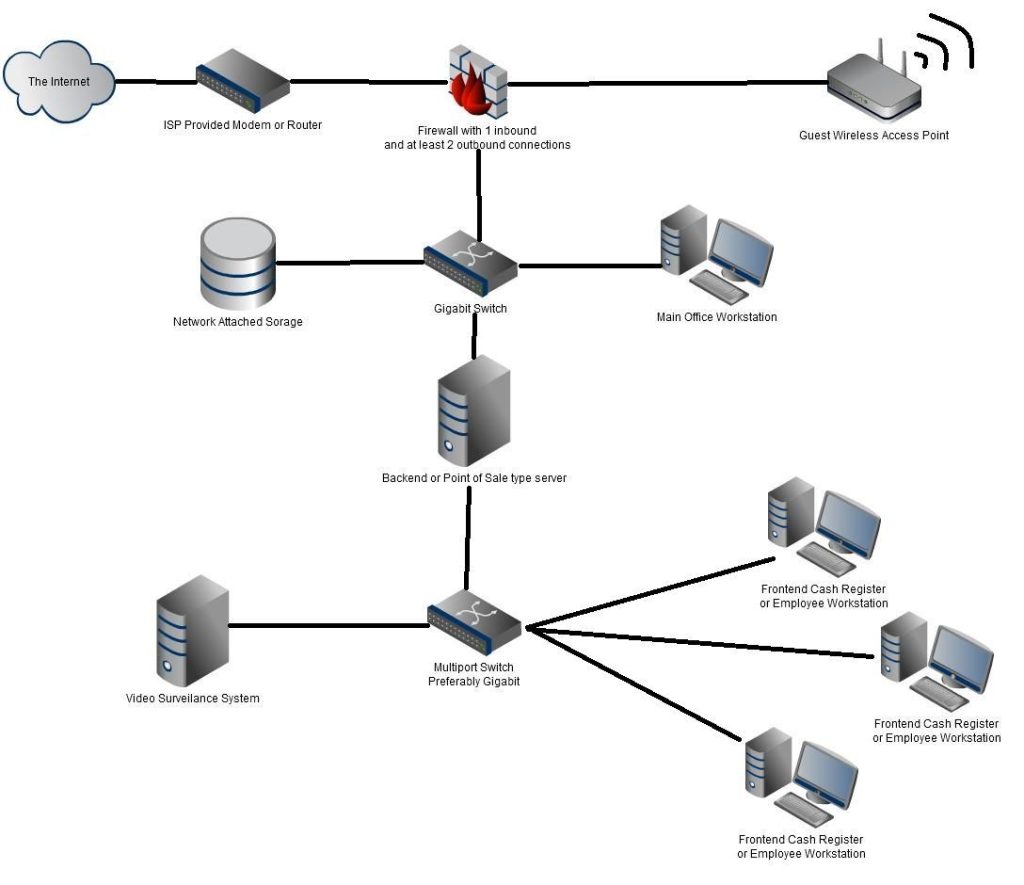
Computer Networking for Small Businesses
Introduction
In today’s digital age, computer networking plays a crucial role in the success of small businesses. Whether you run a startup or a local mom-and-pop shop, a robust and secure computer network is essential for seamless communication, data sharing, and efficient workflow. In this article, we will explore the importance of computer networking and provide valuable insights for small business owners.
Benefits of Computer Networking
Having a well-designed computer network offers several advantages for small businesses:
1. Streamlined Communication
By connecting computers and devices, a network enables effective communication within the organization. Employees can share information, collaborate on projects, and communicate instantly through various tools like email, video conferencing, and shared messaging platforms.
2. Enhanced Data Sharing
With a network, small businesses can centralize data storage and easily share files and resources among employees. This promotes collaboration, reduces redundancy, and optimizes productivity as everyone has access to the necessary information at their fingertips.
3. Improved Flexibility and Mobility
A computer network allows employees to access information and work remotely, enabling flexibility and mobility. This is especially important in today’s increasingly remote work environment, where employees may need to connect from different locations or on the go.
4. Cost Efficiency
Investing in a reliable computer network can save small businesses money in the long run. By streamlining communication, data sharing, and operations, businesses can reduce the need for excessive hardware, duplicate software licenses, and unnecessary manual processes.
Key Components of a Small Business Network
While the specific requirements may vary based on the business’s needs, a typical computer network for a small business consists of the following components:
1. Router
A router serves as the central hub of the network, connecting multiple devices and enabling internet access. It is responsible for directing traffic and ensuring data packets are transmitted securely between devices.
2. Switches
Switches connect devices within the local network, allowing them to communicate with each other. They act as intermediaries, forwarding data packets only to the intended recipients, thus optimizing network efficiency.
3. Firewalls
Firewalls provide essential security for small business networks by monitoring and blocking unauthorized access. They act as a barrier between the internal network and external threats, helping to safeguard sensitive data and protect the business from cyberattacks.
4. Network Attached Storage (NAS)
A NAS device offers centralized and reliable data storage for small businesses. It allows easy sharing and backup of files, ensuring data integrity and accessibility for all authorized users within the network.
5. Wireless Access Points (WAPs)
For businesses that require wireless connectivity, WAPs provide access to the network via Wi-Fi. They enable employees and guests to connect wirelessly, expanding the reach of the network within the office premises.
Conclusion
Computer networking is an indispensable facet of modern business operations. Small businesses can greatly benefit from establishing a well-designed network that enables efficient communication, streamlined data sharing, and enhanced flexibility. By investing in the right networking components and ensuring proper security measures, businesses can position themselves for growth and success in today’s interconnected world.


